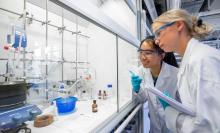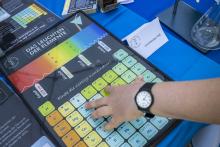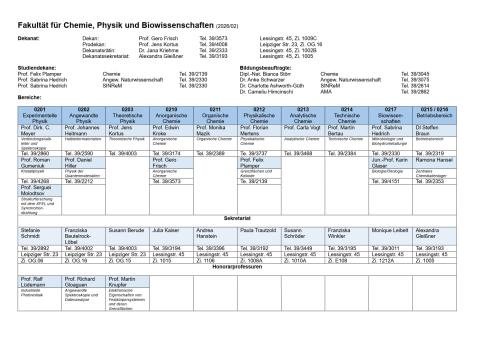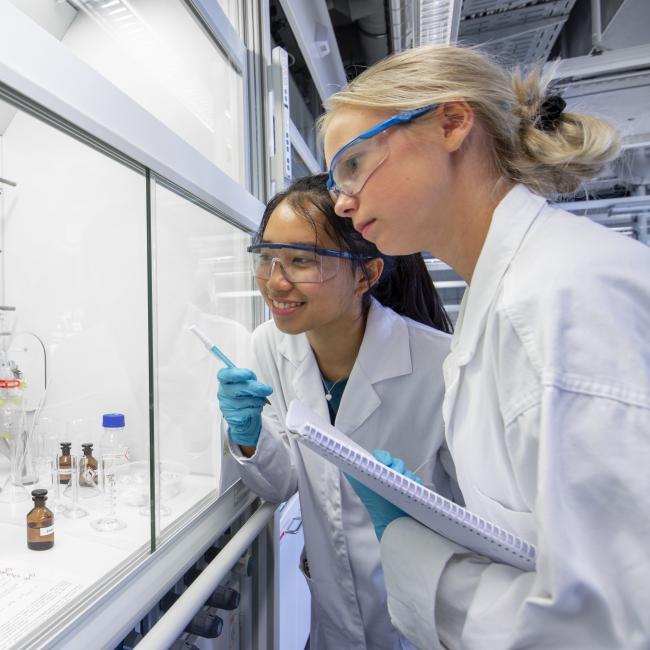- Home
- University
- Faculties
- Faculty of Chemistry, Physics and Bioscience
Struktur der Fakultät
Image

© Crispin-I.Mokry
Research for the future: chemistry, physics and biosciences
Our faculty is dedicated to basic research and the application of this knowledge to the pressing issues of the future. We are working on the development of new materials, future energy storage solutions, processes for a clean environment and the safe and efficient use of resources. We invite you to explore the diverse research projects of our faculty.
The Faculty of Chemistry, Physics and Biosciences is proud of its 250-year history of outstanding scientific achievements, including the discovery of two elements of the periodic table (indium in 1863 by Ferdinand Reich and Theodor Richter and germanium in 1886 by Clemens Winkler).
Image

Crispin-I. Mokry
Study
Study programmes of the faculty, information for prospective students, study counselling
Image

Andreas Hiekel
Organisation
Dekanat, Fakultätsrat, Studiendekane und Studienkommission, Prüfungsausschüsse, Fachschaftsrat
Image

D. Müller
Absolvententreffen 2026
70 Jahre Studiengang Chemie und 30 Jahre Studiengang Angewandte Naturwissenschaft
Image

Detlev Müller
Discovered in Freiberg - the elements indium and germanium
In 1863, the element indium was discovered by Ferdinand Reich and Theodor Richter, and in 1886 the element germanium by Clemens A. Winkler was discovered in Freiberg. During this time, Winkler built up a teaching collection of inorganic specimens comprising around 1400 objects. The Clemens Winkler Collection is still one of the most extensive and almost completely preserved collections of inorganic specimens today.
News
News
Register now! Alumni meeting for Chemistry and Applied Natural Science on 19 September 2026



